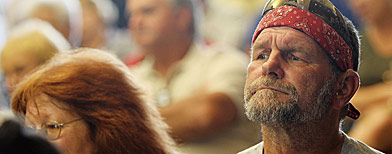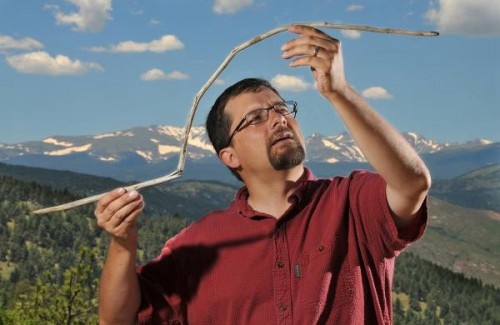A three-year-old Italian boy has amazed his family and doctors with his prodigious talents that include reading the newspaper and giving medical advice. The boy, Ettore, has also mastered use of the television remote control so he can flick through the TV guide on teletext and make viewing suggestions.
What makes the story even more remarkable is that his parents from the town of Perignano near Pisa say the boy taught himself almost all these skills, just by observing adults. ''We started teaching him the alphabet for fun. We would never have imagined his abilities would develop like this,'' said Ettore's father Francesco Grillo, a 44-year-old artist specialized in portraits and reproductions of famous works. ''Then when he was about two he started to read newspapers and TV guides. Initially we thought he memorized phrases and repeated them parrot-like. But then we realized he was reading for real''.

Experts from the local hospital at the Tuscan town of Pontedera are impressed. ''Usually learning to read is a process that takes place at a much later stage, at school age, and it's a gradual process'' said Dr. Amerigo Celandroni, the head of the hospital's pediatric clinic. ''In Ettore's case though, he had not been taught, and yet he reads fluently''. His parents said they have to be very careful about what they say around Ettore because of his powers of comprehension way beyond his years, as shown in his mysteriously acquired know-how of medical matters.
''One day I was talking to my wife about a health problem I had,'' Francesco said. ''Ettore heard and recommended a medicine.
I checked up and saw that it was right for my case''. His parents said they were concerned about whether the three-year-old's abilities would continue to flourish when he starts pre-school in September. ''Let's hope it's a good thing, although we are worried'' the father said. ''What if he loses this gift there? ''I don't know what he'll do with these qualities when he's grown up. The important thing is that it's the right thing for him. Maybe one day this fame he's having will come in handy''.











 In Leonardo DiCaprio’s latest movie Inception, characters can enter other people’s dreams – in reality, science isn’t that far behind:
In Leonardo DiCaprio’s latest movie Inception, characters can enter other people’s dreams – in reality, science isn’t that far behind: Divers exploring a shipwreck near the Åland Islands in the Baltic Sea found bottles of what is thought to be the world’s oldest drinkable champagne. They probably date back to the 1780s and have an estimated value of $65,000 each:
Divers exploring a shipwreck near the Åland Islands in the Baltic Sea found bottles of what is thought to be the world’s oldest drinkable champagne. They probably date back to the 1780s and have an estimated value of $65,000 each:



 Tired of dealing with the rising number of accidents on the road, Indian police came upon a novel (and they say, surprisingly effective) approach: harnessing the positive-power of pyramids!
Tired of dealing with the rising number of accidents on the road, Indian police came upon a novel (and they say, surprisingly effective) approach: harnessing the positive-power of pyramids!



 ABC’s Nightline has a fascinating story about Edward Kagin, an atheist and provocateur, who conducted a mass "de-baptism" of fellow non-believers to symbolically dry off the baptism waters:
ABC’s Nightline has a fascinating story about Edward Kagin, an atheist and provocateur, who conducted a mass "de-baptism" of fellow non-believers to symbolically dry off the baptism waters: